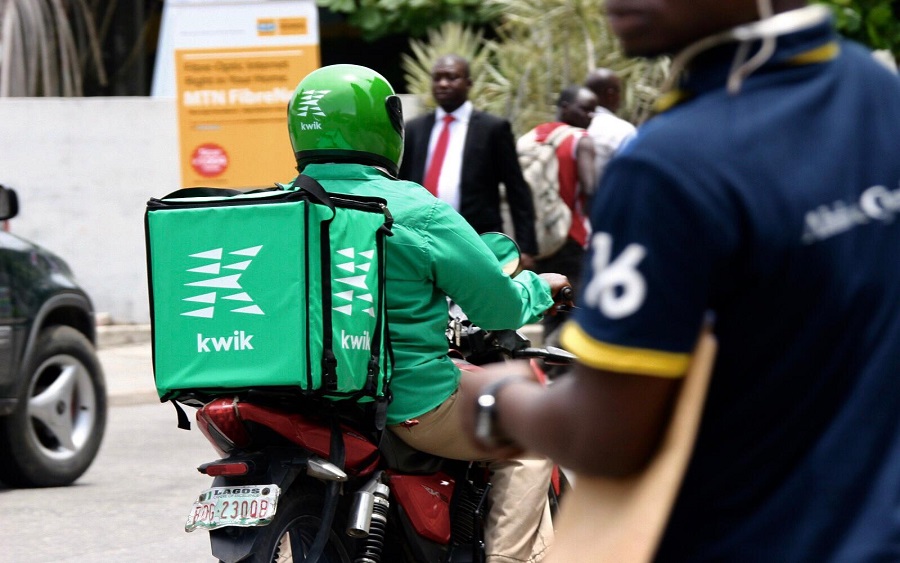Imagine a world where you can help businesses reach their customers without them leaving their homes, or deliver hot meals in minutes to someone hungry. The delivery service business in Nigeria is booming, and the demand for quick, reliable delivery services is growing every day. Whether it’s food, packages, or groceries, people want things fast and at their doorstep.
Starting a delivery business can be a game-changer, offering you the opportunity to tap into this lucrative market. But how do you begin? What do you need to get started? And what steps do you need to take to make sure your business thrives in a competitive market?
Stick with me as we break down everything you need to know to successfully launch your own delivery services business in Nigeria.

What is a Delivery Service Business
A delivery business is a way of helping people get what they buy or need, like food, clothes, or packages delivered straight to their homes, offices, or anywhere that they are. Instead of going to the market or store, the delivery business agent brings it to them quickly and safely.
Key Considerations Before Starting Your Delivery Business
Before jumping into the business, it’s important to understand what you’re getting into.
1. Understanding the Delivery Market: Nigeria’s delivery market includes food delivery (restaurants), courier services (online shopping deliveries), and bespoke services (specialty items). You need to choose which type of delivery service you want to focus on. Are you looking to deliver food, packages, or both?
2. Challenges in the Nigerian Delivery Industry: Starting a delivery service in Nigeria comes with unique challenges like traffic, bad roads, and inconsistent power supply. However, overcoming these challenges with strategic planning can set you up for success.
Related Posts:
- How Much to Start a Laundry and Dry Cleaning Business in Nigeria
- How to Start and Run A Barbing Salon in Nigeria
- How to Make Money Fixing Mobile Phones in Nigeria
- 11 Steps on How to Start Event Planning Business in Nigeria

Essential Requirements to Start a Delivery Business
1. Initial Investment and Costs: To start a delivery service in Nigeria, you’ll need some initial capital. The cost can vary based on whether you’re using motorcycles, cars, or bicycles. A basic bike setup could cost around ₦500,000, including the bike, safety equipment, and marketing costs. You’ll also need money for registration and other small expenses.
Delivery Infrastructure:
1. Vehicles: Your choice of transportation is crucial. You can start small with a motorcycle, which is affordable and ideal for navigating busy roads, for example, Gokada uses bikes for their fast delivery services, and alternatively, you can invest in a car or partner with other drivers like that we see in Kwik that uses bike, cars, and truck for its deliveries.
2. Technology: Reliable delivery software is key. This includes GPS for route optimization and a tracking system so customers can follow their deliveries.
3. Personnel: Hiring skilled and reliable drivers is important to provide the best service. You’ll also need customer service support to handle inquiries.
4. Business Setup: Before you start delivering, make sure your business is officially registered with the Corporate Affairs Commission (CAC) to avoid any legal issues. You’ll also need a catchy business name and a logo that reflects the nature of your services.

How to Launch a Delivery Service Business in Nigeria
With the following steps below, you can launch your delivery service business in Nigeria:
Crafting Your Business Plan for Delivery Services
1. Defining the Scope of Your Business: You need to decide where you want to operate. Are you focused on a specific city, or will you serve the entire country? Knowing your service area will help you better plan your operations.
2. Conducting Market Research: Before starting, research your local market to understand the demand for delivery services. Look at your competitors, who they serve, and what makes them successful. This will help you find gaps in the market and tailor your service to meet the needs of your customers.
3. Defining Goals and Strategy: Set clear business goals. Do you want to provide quick delivery times? Or are you looking for specialized deliveries, like medicines or documents? Also, consider long-term plans for scaling your business, like offering delivery in more cities or expanding your services to different industries.
Choosing the Right Business Model
You can run your delivery business in several ways, depending on the scale you desire:
1. Independent vs. Partnered Model: You can operate independently by offering delivery services directly to customers, or partnering with businesses like online stores or restaurants. Partnering allows you to scale faster with guaranteed clients.
2. Fleet Management: You can choose to own and manage your fleet or work with independent contractors. Both models have their pros and cons. Owning your vehicles gives you full control while working with contractors can reduce initial costs.
3. Service Specialization: You can specialize in a niche market like express delivery or offering temperature-sensitive deliveries (e.g., food). Focusing on a niche helps you stand out from the competition.
Legal Considerations and Licensing
Make sure your business is legally recognized. Register your business with the Corporate Affairs Commission (CAC). You will also need to obtain permits to operate legally and comply with local traffic laws. You might also want to consider getting insurance for your delivery vehicles, which can protect both you and your customers.
Building a Strong Online Presence and Marketing Strategy
1. Digital Marketing Techniques: To grow your delivery business, you need to be visible online. Leverage social media platforms like Facebook, Instagram, and Twitter to promote your services. Create ads, share customer testimonials, and offer promotions.
2. Direct Marketing: You can also approach local businesses, offering your services directly. Restaurant owners, e-commerce sites, and pharmacies are great places to start. Offer discounts for first-time clients to build a customer base.
3. Brand Identity: Your brand should be recognizable and trustworthy. Having a professional logo, clear messaging, and a user-friendly website is essential. Customer trust is key to getting repeat business.
Operations and Scaling Your Delivery Business
1. Building Efficiency: Efficiency is critical in delivery services. Use technology to help manage your fleet, track deliveries, and optimize routes. This not only saves time but also reduces costs.
2. Hiring and Managing Drivers: Your drivers are the face of your business. Ensure they’re well-trained, reliable, and provide excellent customer service. You should also regularly maintain your vehicles to avoid breakdowns.
3. Managing Customer Expectations: Deliveries should be timely and accurate. Customers expect real-time tracking updates, so invest in technology that keeps them informed at every step of the way. This will boost customer satisfaction and loyalty.
Growing and Expanding Your Delivery Business
As your business grows, you’ll need to expand your operations. Consider serving more cities, adding new types of deliveries, or partnering with more businesses. You can also diversify into offering services like packaging or express delivery for urgent needs.
1. Expanding Your Service Area: As your business gains more purchases and people’s attention, consider extending your delivery services to new cities or regions. This expansion can help you tap into new markets and increase your customer base.
2. Offering New Services: You can introduce new types of deliveries, such as same-day deliveries or specialty services like medical or temperature-sensitive deliveries. Diversifying your offerings can help attract different customer segments.
3. Building Strategic Partnerships: Consider partnering with more businesses, such as restaurants, e-commerce platforms, and local shops. This can ensure a steady stream of orders and help you grow quickly. Offering packages or bulk services can also help businesses save costs while providing you with consistent business.
4. Improving Efficiency: Invest in technology and better delivery management tools to streamline operations as you grow. This could include better route optimization, advanced tracking systems, and expanding your fleet as demand increases.

Success Tips
1. Leverage Hyperlocal Market Insights
Instead of going broad right away, focus on mastering a specific neighborhood or city zone. Understand local traffic patterns, peak delivery hours, and customer preferences. This allows for faster deliveries, personalized service, and word-of-mouth growth within a tight-knit community.
2. Integrate Smart Tech for Real-Time Tracking
Use GPS tracking apps and automated dispatch systems that allow both customers and your team to monitor deliveries in real-time. This boosts transparency, customer trust, and operational efficiency, making you stand out from less organized competitors.
3. Prioritize Communication & Feedback Loops
Encourage two-way communication between dispatchers, delivery staff, and customers. Create a system (even via WhatsApp or SMS) where feedback is actively requested after every delivery. Fast response to complaints or suggestions builds a loyal customer base.
4. Optimize Route Planning with Data
Don’t just rely on Google Maps, track delivery time data and use it to constantly refine your delivery routes. This will save fuel, reduce delays, and maximize the number of deliveries per day, especially in traffic-heavy cities.
5. Build Partnerships with Small Businesses
Offer custom delivery plans to local grocery stores, pharmacies, or restaurants that can’t afford their delivery fleet. Becoming their go-to delivery partner creates a steady stream of business and helps grow your brand without extra marketing costs.
Delivery Service Business Frequently Asked Questions and Answers
1. How much does it cost to start a delivery business in Nigeria?
It could cost around ₦400,000 for basic delivery setups, but costs can vary depending on the type of vehicle and service you choose.
2. What are the best states for starting a delivery business in Nigeria?
States like Lagos, Abuja, and Port Harcourt are great places to start due to their high population and business activities.
3. How do I recruit and manage drivers?
Look for responsible, skilled drivers. Offer competitive pay, good working conditions, and regular training to retain them.
4. What marketing strategies should I use for my delivery business?
Digital marketing through social media and Google ads is highly effective. You can also use direct marketing by approaching local businesses or offering promotions to attract your first customers.
Conclusion
Starting a delivery business in Nigeria is a rewarding venture that can bring success with the right planning, determination, and execution. From choosing the right model to using effective marketing, every step will set you on the path to success. As you begin this journey, remember that consistency, excellent customer service, and a commitment to overcoming challenges are ways to success.
Are you ready to start? The delivery industry is waiting for fresh ideas and hardworking entrepreneurs like you. With the right tools and mindset, your business can thrive. Go ahead and take that first step to provide solutions to the masses, your future in the delivery business starts now!
If you found this guide helpful, please consider supporting us by subscribing to our newsletter, liking it, and sharing it with others.


